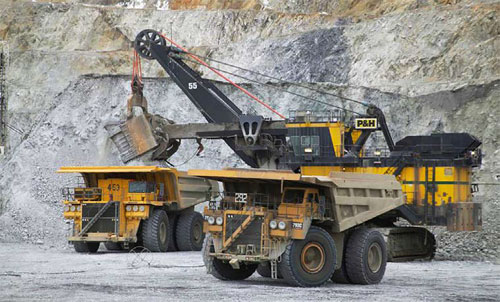Brice Wallace
While Utah’s burgeoning technology sector gets a lot of attention, a couple of longtime stalwarts continue to show their economic muscles.
Utah’s energy and mining industries in 2019 contributed over 10 percent to the state’s gross domestic product, supported over 6 percent of total jobs, and contributed 20 percent to Utah state tax revenue, according to a recently released study commissioned by{mprestriction ids="1,3"} the Utah Geological Survey and completed by Utah State University’s Department of Applied Economics.
The state-funded study looked at GDP, jobs and tax revenue that are the sums of direct, indirect and induced effects. The study focused on 2019 because 2020 was an unusual year due to the effects of the COVID pandemic.
“The energy and mining industries are important contributors to Utah’s economy,” said Michael Vanden Berg, Energy and Minerals Program manager for UGS. “In particular, the upstream segments of these industries are deeply rooted in rural areas of the state. In addition, the mining industry will only become more important as energy sources evolve and society becomes more reliant on electricity and power storage, which depend on lithium, copper, tellurium, indium and more.”
The study concluded that Utah is fortunate to have abundant and diverse energy and mineral resources, including large reserves of conventional fossil fuels, several areas suitable for renewable resource development, and vast quantities of vital mineral resources needed for all aspects of modern life.
However, it noted, effectively managing these energy and mineral resources and their associated supply chains requires knowledge of their economic value and how they currently contribute to Utah’s economy.
By the numbers, energy in 2019 contributed $12.1 billion to the state GDP, or 6.3 percent of Utah’s economy. It accounted for 74,300 jobs, or 3.3 percent of the state total. It provided state tax revenue totaling $1.5 billion, or 14.4 percent of Utah’s total. The energy sector includes crude oil, natural gas, electricity and other associated industries.
Mining in 2019 contributed $7.7 billion to the state GDP, or 4 percent of Utah’s economy. It employed 56,700 people, or 2.7 percent of the state total. It provided state tax revenue totaling $600 million, or 5.6 percent. The mining sector includes coal mining, metal mining, non-metal mining and related industries.
The study also noted that those industries also create high-paying jobs. The average annual wage for energy were calculated to be 45 percent higher than the overall state average wage, while the mining industry paid 28 percent more than the state average.
“We appreciate working with the state of Utah on this economic contribution report,” said Tanner McCarty, report co-author and assistant professor of the Department of Applied Economics at USU. “Understanding the value of these vital industries is important for proper management and support.”
The report is available at https://ugspub.nr.utah.gov/publications/misc_pubs/mp-176.pdf.{/mprestriction}








